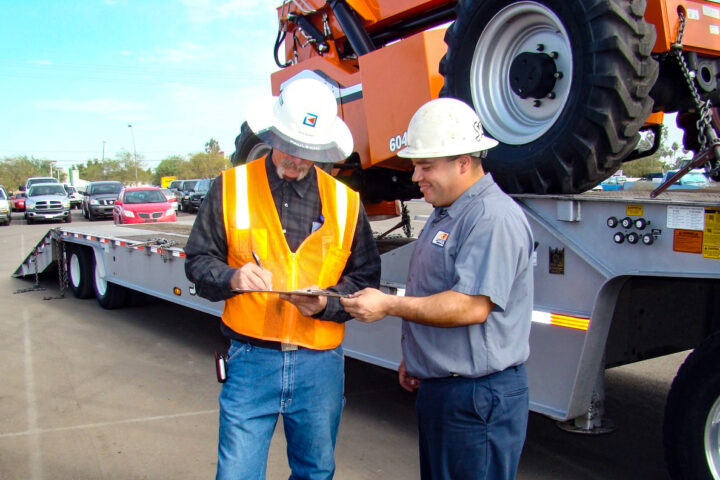Any company hoping to expand must be quick, efficient, and flexible in the cutthroat construction industry of today. Whether it’s taking on larger projects or expanding into new regions, construction firms face the constant challenge of scaling operations without overextending resources. One of the most practical and cost-effective ways to scale quickly is by leveraging construction equipment rental. From financial flexibility to logistical convenience, equipment rental offers critical advantages that support business growth at every stage.
Financial Flexibility That Fuels Expansion
One of the biggest barriers to scaling a construction company is capital. Purchasing heavy equipment outright can drain budgets and limit financial mobility. Equipment rental eliminates this issue by allowing firms to access the machinery they need without massive upfront investments. This frees up funds that can be used to invest in other crucial growth areas, like marketing, technology integration, or employing qualified workers.
Rental costs are predictable and can be treated as operational expenses, helping companies maintain healthier cash flow. For small to mid-sized construction companies that are working with narrower margins or are negotiating the unpredictable financial landscape of early-stage expansion, this is extremely beneficial.
Access To Modern, Well-Maintained Machinery
Owning equipment comes with the ongoing responsibility of maintenance, upgrades, and eventual replacement. For growing construction firms, this can become a logistical headache and a financial burden. Equipment rental providers take care of maintenance and offer access to newer, more advanced machinery, without the firm having to worry about long-term upkeep or depreciation.
This guarantees that companies always have access to the newest models, which frequently include smarter technology, more safety features, and increased fuel efficiency. The result is improved productivity and fewer breakdowns on the job site, all while maintaining a high standard of work.
Operational Agility And Project Readiness
Construction projects can vary widely in scope, duration, and machinery needs. One month, a firm may need an excavator; the next, a crane or a skid steer. Owning every type of equipment to cover all possibilities is not only impractical but also expensive. With rental services, companies can tailor their machinery use to match the specific requirements of each project.
This on-demand access allows construction firms to mobilize quickly for new contracts, regardless of the scale or type of job. It reduces downtime between projects and makes it easier to take on overlapping work, accelerating overall business growth. Simply put, rental services provide the operational agility that growing firms need to compete with more established players.
Easier Entry Into New Markets
Expanding into new regions often involves navigating unfamiliar regulations, transportation logistics, and resource availability. Equipment rental companies usually have multiple locations and understand the compliance requirements for different areas. By collaborating with them, expanding businesses can more easily enter new markets without having to deal with the hassles of licensing and registration or long-distance transportation of owned machinery.
By renting locally, firms can reduce transportation costs and deployment time while ensuring they remain compliant with regional safety and environmental standards. This not only simplifies expansion but also enhances credibility with local clients and stakeholders.
Reduced Risk And Greater Project Confidence
Every business decision carries risk, and scaling is no exception. One wrong investment in underused equipment can put strain on the balance sheet and delay future growth plans. Equipment rental minimizes this risk by offering a try-before-you-buy scenario. If a piece of equipment doesn’t perform as expected or turns out to be a poor fit for recurring projects, it can be returned or exchanged without major loss.
This ability to adjust and recalibrate gives growing construction firms more confidence when bidding on new contracts or taking on unfamiliar work. It reduces the fear of financial loss and encourages companies to pursue opportunities that might otherwise seem out of reach.
Supporting Sustainability Goals
Many growing firms are also prioritizing sustainability as part of their brand and business strategy. Equipment rental supports this goal by reducing the number of machines that sit idle and consume resources unnecessarily. Because rental companies operate on a shared usage model, the carbon footprint of each piece of machinery is distributed more efficiently.
Moreover, newer rental equipment often meets updated emissions standards, allowing construction firms to align their operations with environmental regulations and client expectations. This is increasingly important for winning bids on public infrastructure projects or working with eco-conscious developers.
Conclusion
Scaling up in the construction industry doesn’t have to involve overwhelming financial commitments or risky long-term investments. Equipment rental offers a strategic way to grow with flexibility, efficiency, and minimal risk. By accessing high-quality machinery when needed, maintaining capital for core operations, and improving agility on the ground, construction firms can position themselves for sustainable and scalable growth.




